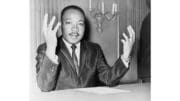by Mark Woolsey
The Wellstar Health System is breaking new medical ground, becoming the first in the country to use a recently developed medical device designed to clear blood clots in the brain during emergency surgery.
What’s called the Tigertriever is an adjustable device designed to remove so-called LVOs, or large vascular obstruction in the carotid artery in major strokes.
“It’s a stent on a stick” said Dr. Rishi Gupta, a vascular neurologist who practices at Wellstar Kennestone Medical Center and who took part in clinical trials on the device, “The stent is deployed across the clot and the operator has control over the expansion of the device.”
Traditional stent technology is not adjustable for size of the artery involved, he said, although there are variable vessel diameters for individual patients, but the Tigertriever’s developer, Israeli medical firm Rapid Medical, has changed the game.
“The Tiger device can expand with a radially adjusted mechanism. We can expand the device to the appropriate dimension required on an individual basis,” he said, anywhere from one to six millimeters to attack clots in the brain’s carotid artery.
Getting the device developed and into use involved some twists and turns, he indicated.
“We did the original testing on animals in 2015-2016,” the surgeon said. “Then they took that data and presented it to the European Union to obtain what’s called CE Marking. It’s been used in Europe for about three years.“
In 2018, the Tigertriever went into the clinical trial phase in the U-S. Gupta was lead investigator along with Dr. Jeffrey Saver at UCLA.
The trial involved 31 patients at Wellstar, 160 across the country, and medical officials said it worked magnificently.
“The results showed that nearly 85 percent of the time the blood vessel could be opened with this technology. That’s roughly a 15 percent improvement from other technologies on the market, “said Gupta.
The FDA approved the device for use in the U.S. in March.
Gupta said he’s using the stent retriever along with several other endovascular surgeons. He said it’s being deployed at Wellstar Kennestone and at North Fulton Medical Center, also a part of the Wellstar system.
The Wellstar surgeon said that about 700,000 strokes occur in the U.S. each year, roughly 8,000 of them in metro Atlanta-and the Tigertriever would qualify for use in about ten percent of the cases.
He and others said that the device needs to be employed as quickly as possible after a major stroke, so identifying symptoms is crucial, such as weakness in the arms and legs or inability to move them, numbness, confusion, headache with vomiting and vision loss.
Cutting off or reducing blood flow to a part of the brain can result in the loss of a million neurons a minute he said. Another sobering statistic: every 30-minute delay in getting care reduces the chance of a good outcome by 12 percent.
Gupta said that although awareness of stroke symptoms and prevention is growing, people in general don’t seem to be aware of the signs as much they are in the case of, say, a heart attack.
As he put it, “For whatever reason if people wake up with a numb arm or a weak hand, they may think they slept on it funny and may try to walk it off. But if you’re having crushing chest pain you’re not going to walk it off.”
Medical officials point out that stroke and heart prevention follow similar paths, such as eating a healthy diet, getting regular exercise and staying away from tobacco.
The surgeon said that longer-term efficacy of the $7,000 device will be followed by Rapid Medical, which will keep a continuing registry.





